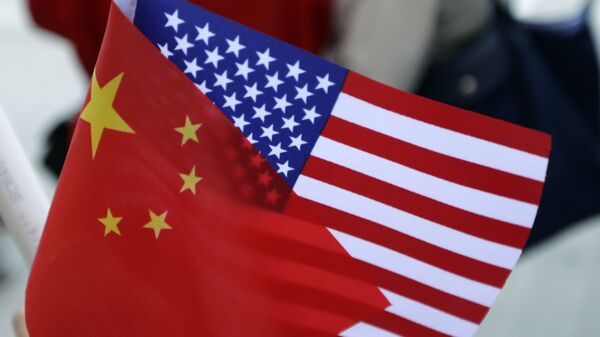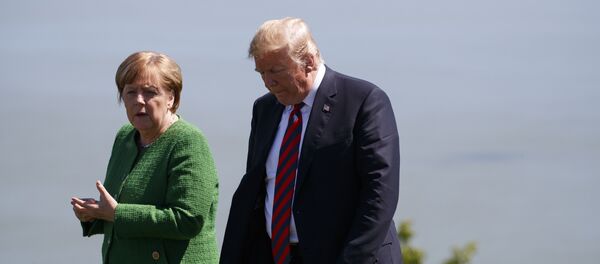Tariffs imposed by US President Donald Trump went into effect at 12:01 a.m. Friday, affecting some $34 billion worth of Chinese goods that include auto parts, soybeans and even lobsters. China has responded by filing a complaint with the World Trade Organization and imposing its own set of tariffs on US products that total $34 billion, the BBC reported.
And this is just the beginning. The Trump administration is also expected to impose additional tariffs on some $16 billion worth of Chinese products two weeks from now — and then, possibly, targeting a further $500 billion worth of goods, POTUS told reporters Thursday.
Woodward told Radio Sputnik's Loud & Clear Friday that the decision to go ahead with the tariffs was "a very serious development."
"It's bad for the US, it's bad for China, it's bad for the world," she told hosts Brian Becker and John Kiriakou. "What's clear is that the US isn't really concerned about the trade deficit; it's just convenient rhetoric."
"The real issue is it wants to stop China from catching up technologically and it believes this is the only way it can," Woodward added.
Recalling an interview she'd seen with an American soybean farmer who was in favour of the tariffs and believed that the trade war would wrap up before the September harvest, Woodward told Becker that the idea was "completely unrealistic."
"The idea that this will be short, the US will bash China, and then China will give in and America will be great again by September… is completely unrealistic," she stressed.
As a means of protecting farmers likely to be hurt by the ongoing trade war with China, Sonny Perdue, the US agriculture secretary, revealed last week that a New Deal-era agency, the federal Commodity Credit Corporation (CCC), would be tapped to offset farmers' losses.
The CCC, which was established in 1933, allows the federal government to borrow $30 billion from the US Department of Treasury for the sole purpose of "stabilizing, supporting, and protecting farm incomes and prices." It came at a time when much of the southern Great Plains was enveloped in the Dust Bowl, destroying crops and driving farmers out of business.
When asked whether the US has the resources to shield the agricultural industry, Australian economist Steve Keen told Radio Sputnik, yes, noting that the unique economic position of the US makes it possible.
"This is the ironic thing about the behavior of countries," Keen began. "They pretend they can run out of their own money. Of course, the Europeans can run of out money because they don't produce their own money… but the American government can create as much money as it wants for whatever purpose it wants. Being the reserve currency of the planet, it doesn't face the consequences of running a trade deficit in the sense of facing de-evaluation, because people still need the American dollar for their own international transactions."
"They can do this relatively indefinitely," Keen noted.
Though only time will tell, Woodward predicts this fix may only work in the short term.
"It's not a sustainable situation because the US is already tremendously overspent," she said. "This whole trade war and ‘Make America Great Again' problem is that US productivity is declining comparatively to it's main competitors, internationally."





